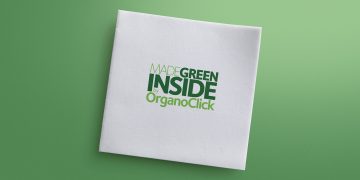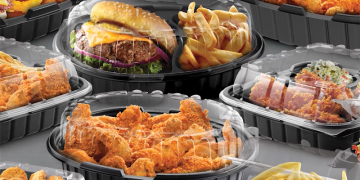Melodea, Ltd., a leading sustainable barrier coatings producer for packaging, introduces its newest innovation, MelOx NGen™. MelOx NGen is a high-performance barrier product specifically engineered to allow for the recyclability of plastic food packaging and beyond. In addition to its excellent eco-profile, the new barrier has proven superior in its key role of maintaining food freshness and substantially reducing plastic waste.
MelOx NGen is a water-based, plant-sourced coating designed to line the inside surface of numerous forms of plastic food packaging such as films, pouches, bags, lidding, and blister packs used to house CPG products and is currently being rolled out to the global plastic industry. Approved by FDA and BfR as compatible for food contact, the coating helps protect and extend the shelf-life of foods such as snacks, confectionary, nutrition bars, meats, and dairy products as well as pharmaceuticals.
Melox NGen is a new iteration of Melodea’s award-winning bio-based and renewable material MelOx for paper packaging but designed specifically for use on plastic. Used to line packaging as a transparent layer, it offers a sustainable and cost-effective alternative to petroleum-based Ethyl Vinyl Alcohol copolymers; – EVOH which are currently widely used in packaging for its food preservation properties as well met-PET plastic materials commonly used to produce lids.
MelOx NGen, could help expand the scope of plastic food packaging eligible for recycling. It can empower food packagers to fulfill their sustainability goals and align themselves with government regulations aimed at reducing the utilization of single-use plastics.
As a part of a long-term strategy for reducing plastic consumption and waste, the EU has implemented the Plastic Waste Directive. This directive sets targets for the recycling and reuse of plastic packaging waste. It established a minimum recycling target of 50% for plastic packaging by 2025, increasing to 55% by 2030. Moreover, in 2021 the EU approved a tax of €800 per tonne of non-recycled plastic containers and packaging produced in member states’ markets. The tax aims to incentivize the adoption of recycling practices and discourage the use of non-recyclable materials.
“The global collective effort to drastically curb plastic use is a long and complex process,” asserts Shaul Lapidot, Ph.D., CEO and co-founder of Melodea. “Our holistic solution can help ease the pressure by boosting the integration of plastic packaging into the circular economy, immediately.”
“The majority of plastic packaging available today cannot be recycled due to its multi-structure composition,” explains Cee Azerraf PhD, VP of Sales & Marketing of Melodea. “EVOH, which is typically infused into the thin plastic films of the food packaging to serve as an oxygen barrier, is non-recyclable preventing the entire package from being recyclable. MelOx NGen presents an eco-friendly and cost-effective solution by being applicable to various forms of plastics, including monostructure plastics that possess exceptional performance properties and are recyclable. Our solution will also relieve the current bottleneck in the supply of EVOH.”
Since the outbreak of COVID-19, there has been a global surge in demand for EVOH, resulting in a significant spike in prices. These prices climbed from $5.5 per kg in 2019 to anywhere between $11 and $14 per kilo at the end of 2022 and are expected to rise further. This surge has prompted food packagers to seek alternative solutions and channels.
“Melox NGen can be effortlessly applied as a thin layer directly to the plastic without the need for primers,” adds Azerraf.
The product has been selected as a finalist in the prestigious Sustainability Awards 2023, specifically within the sustainability in packaging category, organized by Packaging Europe.


















